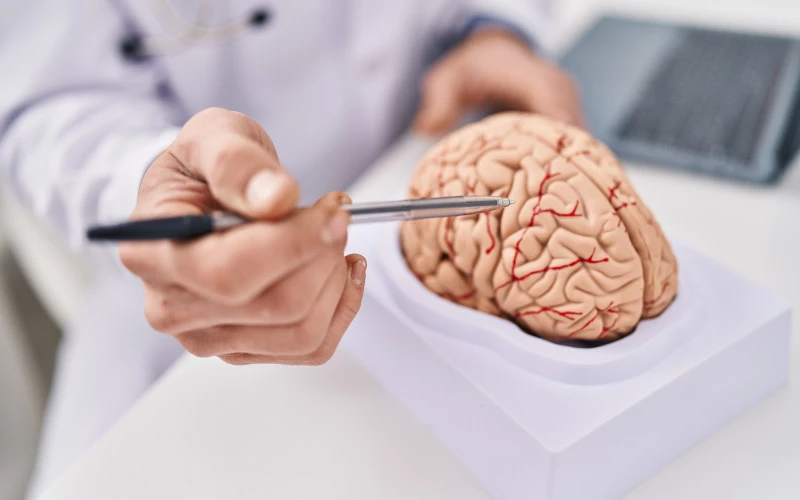Psych Treatment: A Comprehensive Overview to Techniques and End Results

Cognitive-Behavioral Therapy
Cognitive-Behavioral Treatment (CBT) is a widely utilized psychotherapeutic technique that concentrates on determining and changing inefficient reasoning and habits patterns. Developed in the 1960s by Aaron T. Beck, CBT combines cognitive and behavioral theories to deal with various psychological wellness concerns, consisting of depression, stress and anxiety, and stress-related problems. The premise of CBT is that maladaptive thoughts add to emotional distress and maladaptive behaviors. By restructuring these thoughts, individuals can attain considerable improvements in their emotional well-being and everyday performance.
Methods such as cognitive restructuring, direct exposure treatment, and skill-building workouts are frequently utilized. Cognitive restructuring includes tough and changing negative idea patterns, while exposure treatment intends to decrease worry and anxiety through gradual exposure to been afraid objects or situations.
Evidence-based research study supports the efficacy of CBT for a vast array of mental problems - Best Psychologist in Delhi. Its emphasis on ability purchase and self-help strategies encourages clients to continue progression individually after treatment ends. The versatility and effectiveness of CBT have made it a keystone in modern psychotherapeutic technique
Psychodynamic Approaches
Rooted in the very early theories of Sigmund Freud, psychodynamic approaches concentrate on exploring the unconscious mind and its impact on habits and emotions. These approaches intend to uncover surprise thoughts and sensations that might be driving maladaptive actions and psychological distress. Central to this method is the concept of internal conflict, frequently stemming from unsettled previous experiences, particularly those from youth.
Therapists utilizing psychodynamic techniques employ numerous essential approaches, including free organization, where patients are encouraged to talk openly to expose subconscious material, and dream analysis, which interprets the unexposed web content of dreams. Furthermore, the expedition of transfer and countertransference characteristics within the healing partnership is crucial. These communications can offer insights right into the individual's internal world and relational patterns.
Psychodynamic therapy is generally longer-term contrasted to various other modalities, providing a extensive and deep understanding of the individual's mind. Research study shows that it can be specifically efficient for complicated mental health issues, such as individuality disorders and chronic clinical depression. By fostering self-awareness and psychological understanding, psychodynamic therapy seeks to bring unconscious material to awareness, enabling individuals to attain lasting and purposeful modification in their lives.
Humanistic Strategies
Structure on the structures laid by psychodynamic techniques, humanistic techniques supply an unique point of view concentrated on specific prospective and self-actualization. Stemming in the mid-20th century, these strategies prioritize the fundamental goodness and growth potential of individuals, emphasizing an all natural view of human experience. Key numbers such as Carl Rogers and Abraham Maslow have actually significantly affected this restorative strategy, which incorporates methods like client-centered therapy and Gestalt therapy.
Client-centered treatment, developed by Rogers, plays a crucial function in humanistic techniques. It counts on the therapist providing an atmosphere of genuine positive regard, empathy, and harmony. This fosters a secure area for customers to explore their sensations and experiences without judgment, promoting self-discovery and individual development. The specialist's function is more of a facilitator than an authority, encouraging clients to harness their inner sources for healing.
Gestalt therapy, one more vital humanistic strategy, stresses existing moment awareness and the assimilation of mind and body. By focusing on the "present moment," customers get better understanding into their current feelings and actions. Techniques such as role-playing and guided visualization are often employed to help customers get a deeper understanding of themselves, inevitably causing boosted self-awareness and gratification.
Integrative Treatments
Integrative treatments represent a synthesis of different healing techniques tailored to satisfy the special needs of each client. This approach acknowledges the complexity of human psychology and the diverse nature of mental wellness concerns. By incorporating aspects from various schools of psychotherapy-- such as cognitive-behavioral treatment (CBT), psychodynamic treatment, and humanistic techniques-- integrative therapies provide a more flexible and holistic therapy paradigm.
Experts of integrative therapy assess each client's certain requirements, signs and symptoms, and personal history to design a tailored treatment plan. This personalized approach improves the potential for healing success by dealing with the source of mental distress and promoting overall wellness. Techniques may consist of mindfulness exercises, cognitive restructuring, and emotional handling, each picked to target various straight from the source elements of the client's concerns.
Moreover, integrative therapies emphasize the restorative relationship, viewing the client-therapist bond as a crucial part of reliable therapy. This partnership cultivates a helpful atmosphere where clients really feel secure to discover and resolve their worries. The versatility of integrative therapies makes them suitable for a wide series of problems, including anxiety, depression, injury, and social troubles, thus increasing their applicability and effectiveness in varied clinical settings.

Gauging Therapy Results
Reviewing the effectiveness of psychotherapy is vital for both medical professionals and clients to make sure that the therapy is generating the wanted results. To accomplish this, numerous techniques and tools are used to measure therapy end results systematically. Standard analysis instruments, such as the Beck Anxiety Inventory (BDI) and the Generalized Anxiety Condition 7 (GAD-7), provide quantitative information on symptom seriousness and adjustments with time.
In enhancement to standardized tools, qualitative methods like customer self-reports and professional interviews supply valuable insights into the personal experiences and viewed progress of customers. On a regular basis arranged why not check here assessments, commonly at the start, middle, and end of treatment, aid in tracking the trajectory of improvement or determining areas needing change.
Result dimension is not restricted to symptom reduction; it additionally includes practical enhancements in every day life, such as much better social relationships, increased job efficiency, and boosted total health. Modern innovations in electronic wellness have presented mobile applications and online systems that help with real-time tracking and feedback, even more fine-tuning the analysis procedure.
Ultimately, a detailed method to measuring therapy results makes certain that healing treatments additional resources work, efficient, and customized to fulfill the individual needs of clients, therefore maximizing the total healing experience.
Conclusion
Humanistic techniques focus on individual development and self-actualization, while integrative therapies incorporate several techniques for tailored treatment plans. Examining therapy end results with qualitative approaches and standard analyses guarantees a detailed understanding of efficiency, ultimately leading clients towards withstanding psychological health enhancements.
From the structured technique of Cognitive-Behavioral Therapy (CBT) to the deep expedition of the subconscious in psychodynamic treatment, each approach brings special benefits. Its emphasis on ability purchase and self-help methods encourages clients to continue development independently after treatment wraps up (Best Psychologist in Delhi). Key figures such as Carl Rogers and Abraham Maslow have actually substantially influenced this healing strategy, which includes approaches like client-centered therapy and Gestalt therapy

Comments on “How to Choose the Best Psychologist in Delhi for Personalized Therapy”